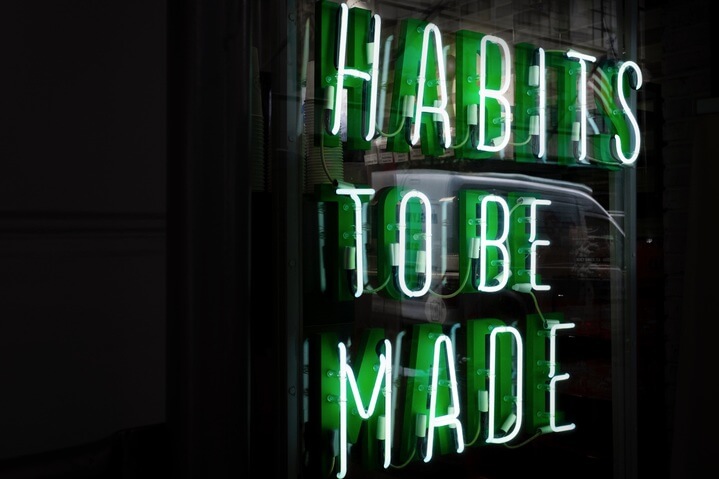This is a Guest Post written by Christalle Bodiford.

Christalle Bodiford is an artist, advocate, writer, and adventure seeker. As an entrepreneur diagnosed with epilepsy, Christalle brings a unique perspective of empowerment that inspires others to embrace a positive mindset and live with purpose. When she’s not writing or advocating, Christalle enjoys puppy snuggles with her scruffy terrier and outdoor adventures with her husband.
3 TYPES OF SELF CARE TO KNOW IF YOU HAVE AN INVISIBLE DISABILITY

When it comes to self-care, many people think of spa days or bubble baths, but self-care looks different for everyone, so it’s important to find what type of self-care works best for you and your lifestyle.
Just as an introvert may feel recharged after spending time alone, some self-care practices may leave you feeling better than others. What works for you may not work for your family, so find whatever type of self-care helps you to feel better.
If you’re new to self-care, you’re probably wondering what it’s all about. What exactly is self-care? According to psychcentral.com, “Self-care is any activity that we do deliberately in order to take care of our mental, emotional, and physical health. Although it’s a simple concept in theory, it’s something we very often overlook. Good self-care is key to improved mood and reduced anxiety.” So what makes you feel good and keeps you healthy? Let’s visit three types of self-care to help you find which type best fits your personality.
The Self-Care Breakdown
3 Types of Self-Care

Mind
- Mental self-care includes activities to improve our mental state. This includes our mental health, intelligence, skills, talents, and mental stamina.
- Chronic illness can affect our brains in unique ways. Practices mental self-care is a step in the direction of gaining better control over how your chronic illness can affect your mental state.
- Examples of mental self-care include: reading a book, learning a new skill, and practicing a hobby.
Body
- Taking care of our physical bodies should be a top priority for everyone. They are our vehicles in this life and when they fail, and as many of us with chronic illness know, life can become more challenging.
- The physical type of self-care can be broken down into two categories:The first category includes what most people think of when they think self-care. It can best be categorized as ‘things we do to our physical bodies’ for our external appearance, such as beauty rituals.The second category includes‘things we do for our physical bodies’ to improve our health and wellbeing, such as going for a walk.
- Examples of physical self-care include: a beauty routine, resting when needed, and exercise.
Spirit
- Spiritual self-care enriches your connection to ourselves and the higher power in which you believe. (God, Universe, Spirit, Goddess, Mother Earth, etc.) A person’s spiritual practice can vary depending on their beliefs.
- A person does not have to be religious in order to have a spiritual practice. Sometimes, something as simple as using a mantra for motivation can be seen as a spiritual practice. Some people go to the beach to connect with the earth, while others simply take their shoes off while outside, either activity can be seen as a spiritual practice. It’s important to find what feels best to you and fits your lifestyle.
- Examples of spiritual self-care:Religious examples: reading scripture, daily devotion, and paying tithings. Non-religious examples: meditating, connecting with nature, and attending a healing circle.
Sixty-Six Days

Do you know that it takes approximately sixty-six days to form a new habit? Not twenty-one as previously thought. Doesn’t knowing that give you a better understanding of why forming new habits can feel so challenging? Have you ever felt like a failure when trying to implement a new habit? I certainly have! Something as simple as adding a new vitamin to my daily routine can trigger feelings of failure, insecurity, and self-doubt, but having the proper tools to succeed can help you avoid feeling like forming a new habit is impossible.
Steps to Creating A Habit
- Set Your Intention
- This allows you to clarify the actions needed in order to move you towards accomplishing your intention.
- Start small to avoid feeling overwhelmed by the bigger picture. Break your goals down into tiny steps. Work towards your goal each day and compliment yourself for your efforts.
- Connect the Dots
- Create triggers in your environment to help you remember your new habits.
- Incorporating new habits into your already established routine will help to solidify the habits by connecting them to existing actions.
- Reward Yourself
- When most people think of a reward they associate the reward with the celebration after âccomplishing the intention. This is OK, but if your intention is to incorporate a new habit into your routine – this may not be the best method.
- If enjoying your reward during your new habit, you’re more likely to enjoy the activity and will associate the pleasure of the reward with the habit – tying it to an emotion so it is more likely to stick.
Sixty-six days is an approximate amount of time, but in reality the time will vary depending upon your dedication and commitment to your new habits. “If you focus on choosing the right small actions, building the right environment, and using the right small rewards, the habit you build will be stronger and develop faster. “ – routineexcellence.com
It’s Not Complicated

Remember, START SMALL… Try a self-care practice on a Sunday afternoon to jumpstart your new week: read a book, enjoy a cup of tea, and get cozy in your favorite nook. Or, maybe you’re more of a gym time, hang out with friends, and enjoy some good food kind-of-person?
Whatever resonates with you, is what you should start with… Self-care is about making yourself feel better, so don’t do anything that makes you feel uncomfortable. Not everyone practices self-care in the same ways, and that’s perfectly OK!
Here are ten easy self-care practice ideas to get you started:
- Rest
- Spend time with friends
- Eat your favorite meal
- Listen to your favorite song
- Enjoy a cup of tea
- Read a book
- Watch a movie
- Practice a skill
- Meditate or pray
- Go for a hike



I love this. I love the simplicity of it. Because self-care can get complicated, but it doesn’t have to be.
Exactly! Self-care could simply mean taking a break to read a book for 30 minutes a day. Nothing about it has to be complicated! It’s all about what feels best for you and works for your lifestyle.
Excellent. I enjoyed reading this. Some of these practices I already do. Slowing down to rest my body is difficult. I like the way it was written that one can go slowly changing a habit. Not all in 66 days. One step at a time.
Especially if someone is not a big picture person, breaking anything into steps is beneficial. It can make even the most overwhelming task seem bearable. Some people like to dive into things head first, others like to start by dipping their toes into the shallow end. Do whatever works for you, one step at a time.
Love this for everyone, disability or not. Finding what works for you is so important!
Thank you, Lori! 🙂 You are absolutely correct. Self-care is individual for anyone, with or without a disability. Finding what works best for you is imperative and directly linked to how restored you feel afterwards!!
Thank you for reading my “old” friend ! ???